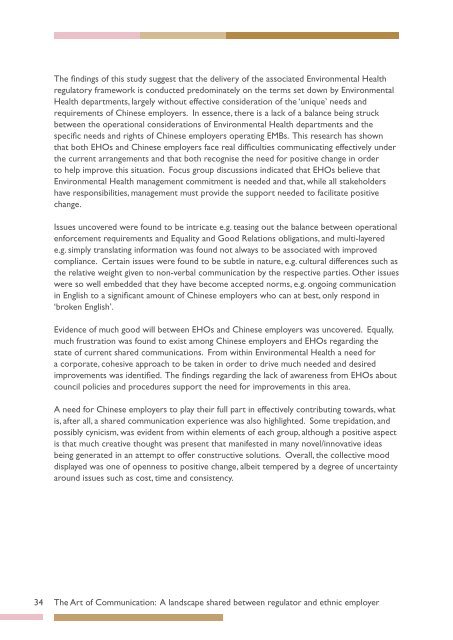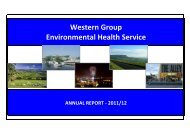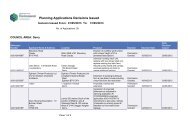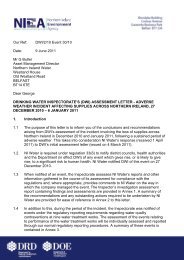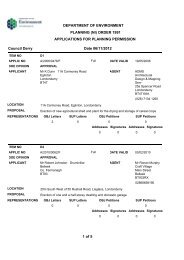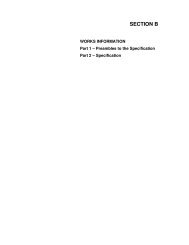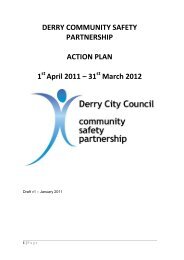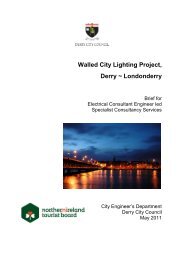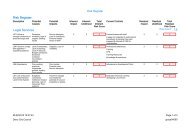The Art of Communication: - Derry City Council
The Art of Communication: - Derry City Council
The Art of Communication: - Derry City Council
You also want an ePaper? Increase the reach of your titles
YUMPU automatically turns print PDFs into web optimized ePapers that Google loves.
<strong>The</strong> findings <strong>of</strong> this study suggest that the delivery <strong>of</strong> the associated Environmental Healthregulatory framework is conducted predominately on the terms set down by EnvironmentalHealth departments, largely without effective consideration <strong>of</strong> the ‘unique’ needs andrequirements <strong>of</strong> Chinese employers. In essence, there is a lack <strong>of</strong> a balance being struckbetween the operational considerations <strong>of</strong> Environmental Health departments and thespecific needs and rights <strong>of</strong> Chinese employers operating EMBs. This research has shownthat both EHOs and Chinese employers face real difficulties communicating effectively underthe current arrangements and that both recognise the need for positive change in orderto help improve this situation. Focus group discussions indicated that EHOs believe thatEnvironmental Health management commitment is needed and that, while all stakeholdershave responsibilities, management must provide the support needed to facilitate positivechange.Issues uncovered were found to be intricate e.g. teasing out the balance between operationalenforcement requirements and Equality and Good Relations obligations, and multi-layerede.g. simply translating information was found not always to be associated with improvedcompliance. Certain issues were found to be subtle in nature, e.g. cultural differences such asthe relative weight given to non-verbal communication by the respective parties. Other issueswere so well embedded that they have become accepted norms, e.g. ongoing communicationin English to a significant amount <strong>of</strong> Chinese employers who can at best, only respond in‘broken English’.Evidence <strong>of</strong> much good will between EHOs and Chinese employers was uncovered. Equally,much frustration was found to exist among Chinese employers and EHOs regarding thestate <strong>of</strong> current shared communications. From within Environmental Health a need fora corporate, cohesive approach to be taken in order to drive much needed and desiredimprovements was identified. <strong>The</strong> findings regarding the lack <strong>of</strong> awareness from EHOs aboutcouncil policies and procedures support the need for improvements in this area.A need for Chinese employers to play their full part in effectively contributing towards, whatis, after all, a shared communication experience was also highlighted. Some trepidation, andpossibly cynicism, was evident from within elements <strong>of</strong> each group, although a positive aspectis that much creative thought was present that manifested in many novel/innovative ideasbeing generated in an attempt to <strong>of</strong>fer constructive solutions. Overall, the collective mooddisplayed was one <strong>of</strong> openness to positive change, albeit tempered by a degree <strong>of</strong> uncertaintyaround issues such as cost, time and consistency.34<strong>The</strong> <strong>Art</strong> <strong>of</strong> <strong>Communication</strong>: A landscape shared between regulator and ethnic employer


